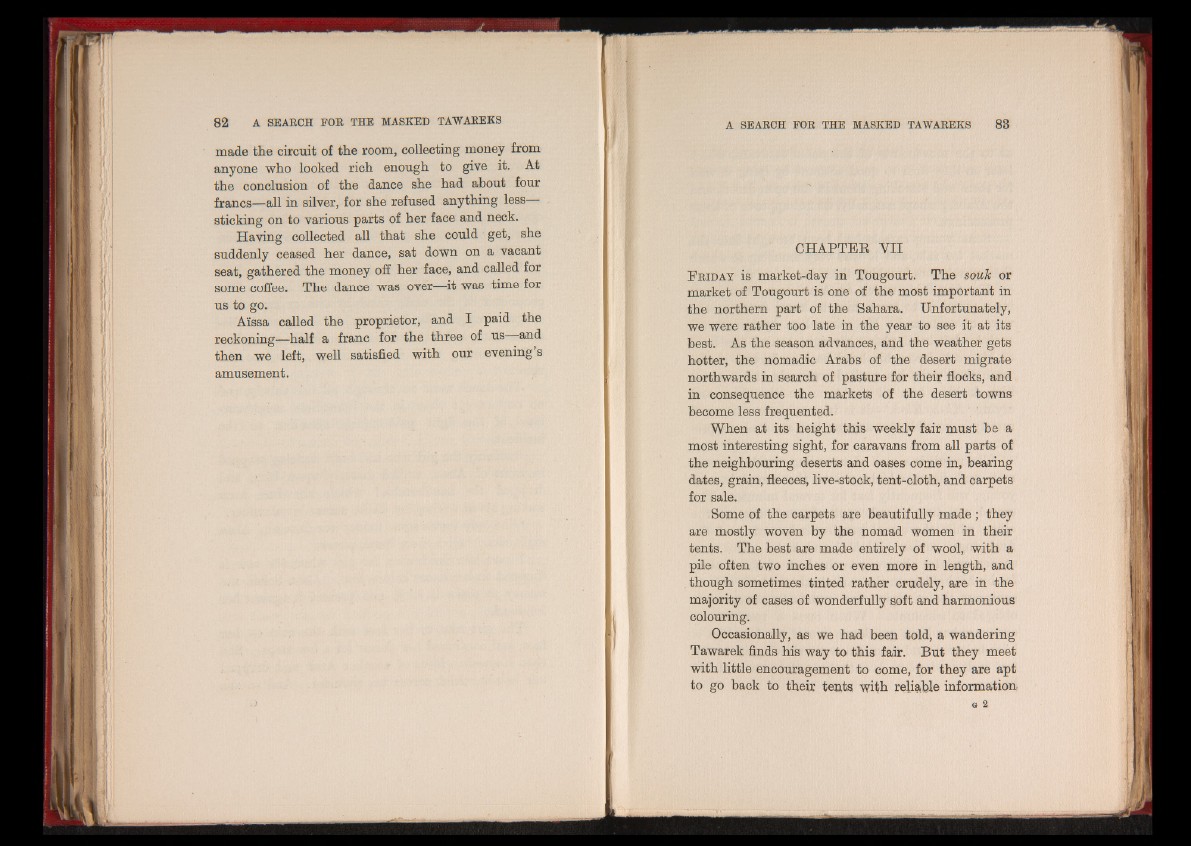
made the circuit of the room, collecting money from
anyone who looked rich enough to give it. At
the conclusion of the dance she had about four
francs—all in silver, for she refused anything less
sticking on to various parts of her face and neck.
Having collected all that she could get, she
suddenly ceased her dance, sat down on a vacant
seat, gathered the money off her face, and called for
some coffee. The dance was over—it was time for
us to go.
Aissa called the proprietor, and I paid the
reckoning—half a franc for the three of us and
then we left, well satisfied with our evening s
amusement.
CHAPTER YII
F riday is market-day in Tougourt. The souk or
market of Tougourt is one of the most important in
the northern part of the Sahara. Unfortunately,
we were rather too late in the year to see it at its
best. As the season advances, and the weather gets
hotter, the nomadic Arabs of the desert migrate
northwards in search of pasture for their flocks, and
in consequence the markets of the desert towns
become less frequented.
When at its height this weekly fair must be a
most interesting sight, for caravans from all parts of
the neighbouring deserts and oases come in, bearing
dates, grain, fleeces, live-stock, tent-cloth, and carpets
for sale.
Some of the carpets are beautifully made ; they
are mostly woven by the nomad women in their
tents. The best are made entirely of wool, with a
pile often two inches or even more in length, and
though sometimes tinted rather crudely, are in the
majority of cases of wonderfully soft and harmonious
colouring.
Occasionally, as we had been told, a wandering
Tawarek finds his way to this fair. But they meet
with little encouragement to come, for they are apt
to go back to their tents with reliable information